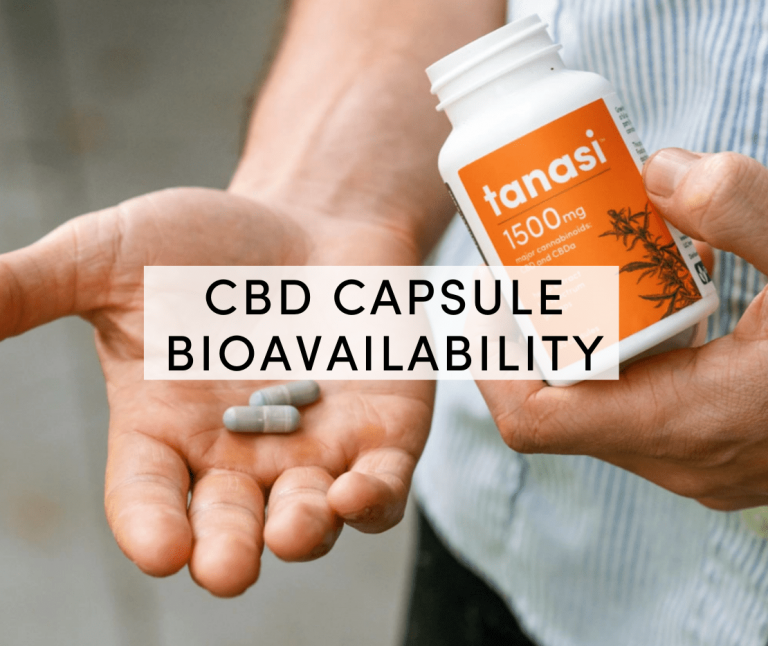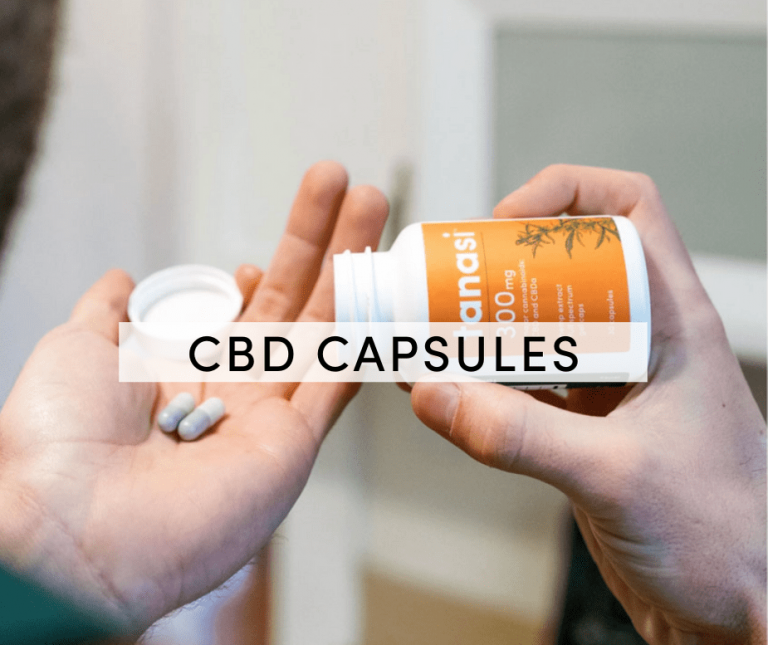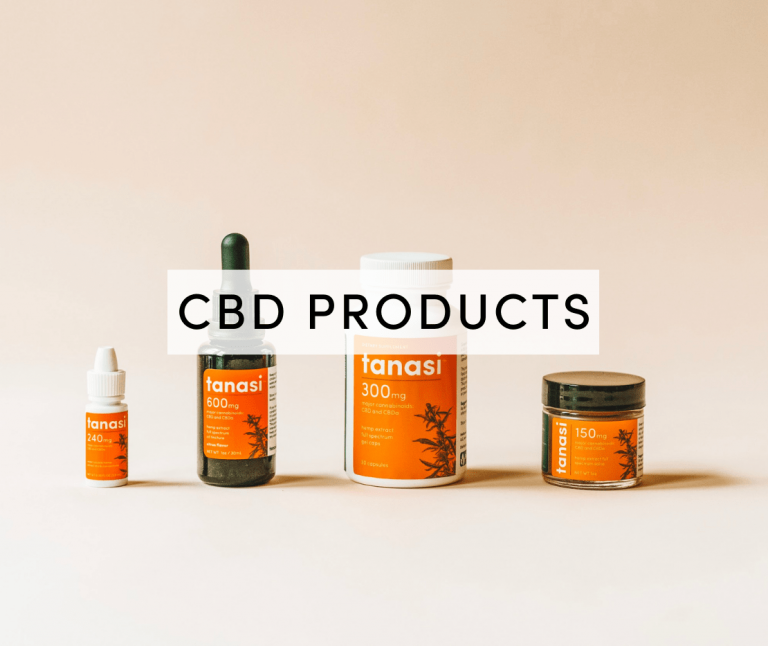CBD Capsule Bioavailability: Not Highest, But Perhaps Most Convenient

Posted on April 26th, 2021
CBD users and enthusiasts of this growing industry already know that there are a plethora of CBD products on the market. Consumers are also spoiled for choice when it comes to methods of taking CBD. For example, some of the most common intake methods include taking it sublingually, topical application, smoking, vaping, and ingesting. Besides user preference, one can’t help but wonder what sets these methods apart. Well generally, the bioavailability of CBD will differ depending on the CBD product and the intake method. One popular product is the CBD capsule. But what exactly is bioavailability? Why is it important to know about CBD capsule bioavailability, and how does it benefit users? This article seeks to demystify the topic of bioavailability and the health benefits that come with it. Read on to find out more.
What is Bioavailability?
Physiologically speaking, bioavailability is the rate and extent to which a drug or metabolite (active moiety) successfully enters systemic circulation and becomes fully available to the intended site of action. More generally, bioavailability can also be defined as the fraction of the active form of a substance or drug that reaches systemic circulation unchanged. Bioavailability is a key part of the pharmacokinetics paradigm, which is generally the study of drug movement throughout the body. Thus, one can think of CBD bioavailability as the rate and degree it is absorbed into the bloodstream. It means that the method of CBD intake influences its uptake and distribution throughout the human body. So, why is this important to know? Understanding bioavailability helps consumers shop for CBD products that best suit their needs.
 How Bioavailable are CBD Capsules?
How Bioavailable are CBD Capsules?
Different forms of CBD administration have different levels of bioavailability. Generally, ingestible CBD products have a very low bioavailability, making them less-efficient forms of administration. Vaping and smoking are the most efficient common methods of CBD intake as they have higher absorption rates via the lungs.
Inhaling cannabidiol is a more direct route and reaches systemic circulation more quickly. This increases the amount of CBD that the body absorbs and also reduces the amount of the necessary oil in a single dose. Placing oils, tinctures, and sprays under the tongue is another way that can increase the bioavailability of CBD. Edibles and oils have to pass through the digestive system before absorbing into the bloodstream. Once in the gut, CBD breaks down from CYP450 enzymes. Unfortunately, this has the potential to reduce CBD capsule bioavailability by close to 50%.
Topical CBD products like lotions and salves account for probably the lowest bioavailability of all administration methods. CBD capsules or pills refer to CBD products in which the extract is added to a capsule or a pill. They make administration and dosing simpler than most other products as users already know the exact dose concentration when taking the capsule.
CBD capsules/pills are a great way for first-time CBD users to enjoy this cannabinoid as they don’t have a strong flavor or taste like oils do. In fact, one can think of CBD capsules as any other supplements. What makes them even more convenient is that they are easy to carry around, and users can even use them while at work.
CBD Capsule Bioavailability
CBD capsules often contain a CBD gel or powder which you ingest orally like any other supplement. While they are a popular CBD product, capsules or pills have the lowest bioavailability. Studies indicate that CBD capsule bioavailability may be a mere 6%. It has an absorption rate of about 13-20% and a half-life of 1-2 hours.
One might wonder why CBD capsule bioavailability is so low. In short, it has to break down in the digestive system like any other food or supplement. More than 50% of CBD in the capsule is flushed away in the digestive system in a process called the first-pass effect. This means that very little of the CBD gets to the bloodstream or into systemic circulation.
How about its half-life? The elimination half-life is a pharmacokinetic parameter describing the time it takes for the concentration of a substance or drug in the body to reduce by half (or 50%). Generally, the effect of CBD in capsules or pills will have negligible therapeutic effect after about 4 hours when its concentration is about 6.25% of the original dose.
What Affects CBD Capsule Bioavailability?
Basically, CBD is a fat-soluble compound, which makes it harder for the body to absorb. Like lipids in the digestive system, digestive enzymes (CYP450) must break down the CBD. This means that most of the compound (around 50%) is gone before the liver metabolizes it.
Besides the digestive process, the concentration of the CBD extract in the capsule and dosage may also affect the bioavailability. Taking small doses of CBD capsules or pills means that only a small amount of CBD will be available to the body in the first place. So as a rule, capsules should contain much higher doses to compensate for the amount lost during digestion.
 Other Products’ Bioavailability
Other Products’ Bioavailability
Of all forms of drug or substance intake, intravenous administration accounts for the highest bioavailability (100%). This is because the substance goes directly into the bloodstream, bypassing other systems where some of the compound would have otherwise been lost.
CBD Oil
Over the years, CBD oil has reigned supreme in the CBD industry and has been by far the most popular product. With its ease of production and intake options, CBD oil/tincture has undoubtedly been the go-to product for most consumers. However, with users and manufacturers seeking more bioavailable CBD products, water soluble CBD has emerged as a more potent product.
Like any other oil, CBD oil doesn’t mix with water, and this has led to the development of a CBD product that is water-soluble.
Water-Soluble CBD
Simply put, water soluble CBD refers to a CBD product that readily dissolves in water to form a solution. Water soluble CBD is a hydrophilic (water-loving) substance, meaning that they will easily pass through the lipid bilayer of the body cells. Of all ingestible CBD products, water soluble CBD offers the highest bioavailability. The solution bypasses the process of digestion and absorbs more quickly into the bloodstream.
Vaping and Smoking
Smoking or vaping CBD means that users inhale the vapor/smoke straight into the lungs. This way, most of the CBD finds its way into the bloodstream faster than most other methods of intake. Research shows that vaporizing CBD could yield bioavailability as high as 56%.
The absorption rate of CBD from smoking hemp flowers is high as well. Smoking CBD may have a bioavailability of about 31%, with the half-life of CBD being about 30 hours.
Sublingual CBD Intake
Sublingual intake of CBD oil involves placing a few drops under the tongue or spraying the oil under the tongue. This method can improve the bioavailability of oral CBD but its rate falls below that of vaping CBD. Thus, sublingual CBD bioavailability falls between 6% and 35%.
Edibles
CBD edibles have also become common products on the cannabidiol market, and include CBD gummies, candies, cookies, and even cakes. However, these account for the lowest bioavailability as the digestive system breaks down much of the CBD.
Topical Application
Transdermal and topical CBD are also popular methods of using CBD, especially among those seeking pain relief and treatment of skin conditions. While the endocannabinoid system has receptors all across the skin, the permeability of CBD through the skin is often slow, meaning that bioavailability is generally low. It is no wonder that users who need faster pain relief use more of a salve or balm, or look for one with a high CBD concentration.
Conclusion
The topic of bioavailability is an important one when it comes to CBD products and methods of intake. Generally, CBD capsule bioavailability is lower than most other products like water soluble CBD. Methods such as vaping and smoking also allow for a higher bioavailability. Ultimately, knowing the CBD bioavailability of a product will help you choose your ideal product wisely depending on your needs.

Related Posts in CBD Capsules

Oct 13 2021
CBD Capsules – Fueling Health and Wellness?
Read More →
Apr 26 2021
CBD Capsule Bioavailability: Not Highest, But Perhaps Most Convenient
Read More →
Mar 24 2021
CBD Products: Which Ones You Should Consider Trying
Read More →
Feb 22 2021

